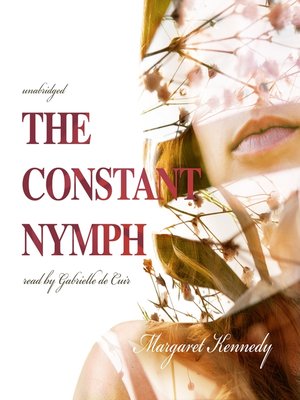
Sign up to save your library
With an OverDrive account, you can save your favorite libraries for at-a-glance information about availability. Find out more about OverDrive accounts.
Find this title in Libby, the library reading app by OverDrive.



Search for a digital library with this title
Title found at these libraries:
| Loading... |
"[The Constant Nymph is] one of the best novels old or new, that had ever absorbed a reader's attention during the still hours."—Augustine Birrell, the New Statesman, December 6, 1924
Lewis Dodd, a young, troubled composer, arrives at "Sanger's Circus," a wild gathering consisting of precocious children, a slovenly mistress, and an assortment of hangers-on in the Austrian Alps overseen by the eccentric Albert Sanger, a brilliant, if unappreciated, composer himself. Tessa, Sanger's lively fourteen-year-old daughter, falls in love with their handsome visitor.
After Albert's death leaves Tessa and her siblings penniless, they must implore extended family members for assistance. Florence, Tessa's twenty-eight-year-old cousin, graciously steps in to help and she falls in love with Lewis ... and he reciprocates. Florence and Lewis marry, much to Tessa's dismay, and the Sanger children are shipped off to boarding school. But Lewis, while loyal to his bride, nonetheless finds himself drawn to Tessa more and more. Even marriage cannot completely sever the bond between Lewis and his constant nymph.
An immediate bestseller whose fans included fellow authors Thomas Hardy, J. M. Barrie, A. E. Housman, and John Galsworthy, The Constant Nymph was adapted both on stage and on screen in the decades after its release. Ostensibly a tale of female rivalry, Margaret Kennedy's classic deftly explores the tension between creative genius and the stifling constraints of polite society in early twentieth-century England.






